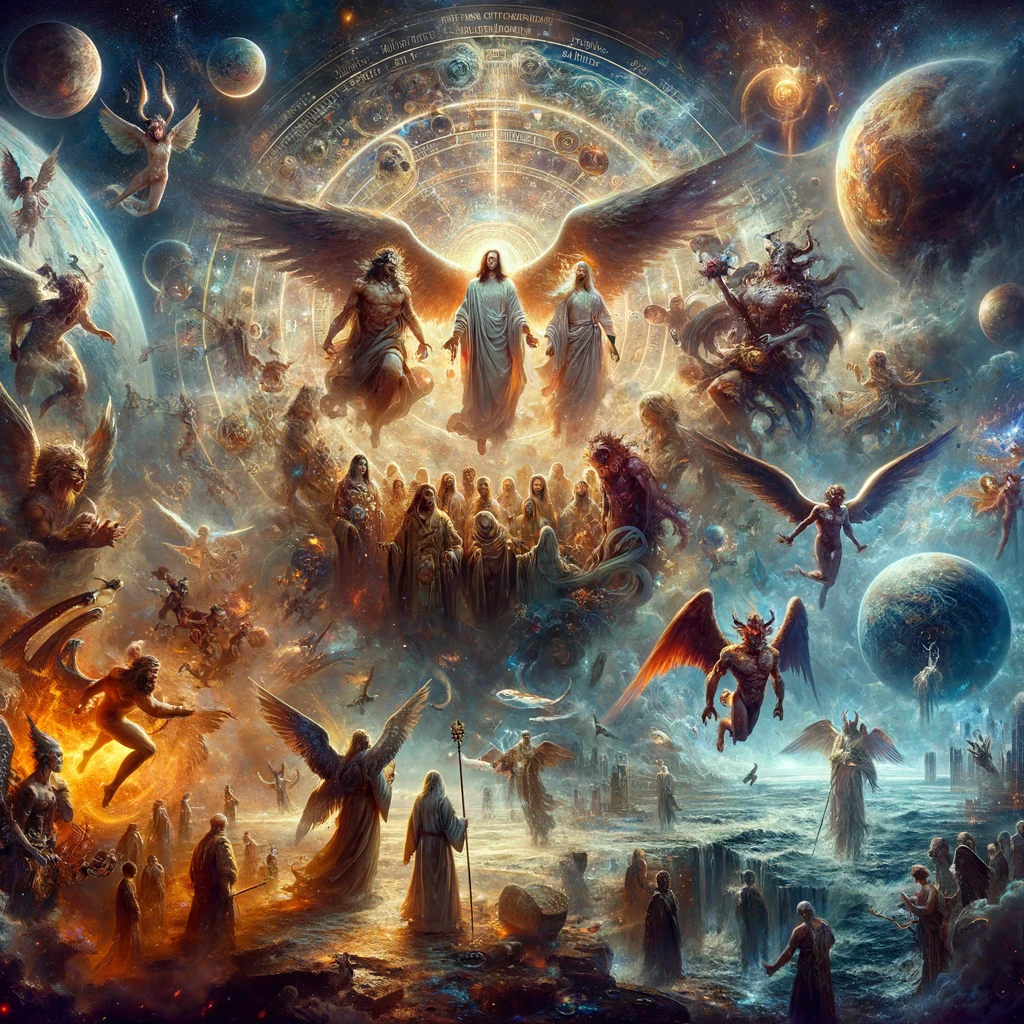The Unseen Realm Documentary

“The Unseen Realm” is a documentary film that ventures into the depths of biblical interpretation and theology, directed and produced by a collaborative team led by Reuben Evans, alongside Bob Pritchett, Brian Russell, Jarred Coates, and Corbin Bernsen. Hosted on the Logos Bible Study Platform and unveiled on October 12, 2022, the film features Dr. Michael S. Heiser as its guiding intellect, who looks into the complex subject matter of the spiritual entities acknowledged within the Bible, including angels, demons, and other supernatural beings collectively referred to as “Elohim.”
The documentary is an ambitious exploration that challenges conventional Christian understanding by highlighting the distinction and uniqueness of Yahweh among the Elohim, emphasizing the monotheistic core of Christianity while acknowledging the existence of a multifaceted spiritual realm. Through a series of reflective musical interludes and profound narrations, the film takes its audience on a journey that reinterprets familiar biblical passages, unveiling hidden meanings and inviting viewers to perceive the Bible through the worldview of its authors.
Central to the documentary’s thesis is the notion that Yahweh, the God of Israel, stands supreme among the heavenly council, a concept deeply rooted in ancient Near Eastern traditions and biblical texts such as Psalm 82 and Deuteronomy 32. This council, composed of God’s “sons” or divine beings, participates in the governance of the cosmos, albeit under Yahweh’s sovereign rule.
The film intricately explains biblical narratives, from the fall of Adam and Eve and the subsequent entry of sin and death into the world, to the figures of the Nephilim and their role in the antediluvian world, further complicated by subsequent acts of rebellion that shaped the spiritual and physical landscapes of humanity. The transgressions of these divine beings and their offspring are portrayed as pivotal events that have left indelible marks on human history and the structure of the spiritual realm.
Dr. Heiser’s narration guides the viewer through these complex theological landscapes, drawing connections between Old and New Testament texts to paint a picture of a world caught in a cosmic conflict between divine forces. The documentary posits that humanity’s destiny is intricately tied to this spiritual warfare, with believers destined to play a crucial role in the divine council, replacing the rebellious entities and restoring God’s intended order.
“The Unseen Realm” explores the intricate dynamics of the supernatural realm, shedding light on the rebellion within the heavenly hierarchy, the consequential spread of evil on Earth, and the divine judgment awaiting those who defy the celestial order. Central to this narrative is the rebellion led by certain “sons of God,” a term that the documentary suggests refers to angelic beings who overstepped their heavenly bounds by descending to Earth and engaging with human women. This union, according to the narrative, resulted in the birth of the Nephilim, a race of giants or formidable warriors, whose very existence amplified the proliferation of wickedness among humanity.
The documentary looks into the punitive measures taken against these rebellious angels, drawing upon scriptural references from 2 Peter and Jude to depict their binding in chains and subsequent confinement in Tartarus. This dark, abyssal realm is portrayed not merely as a place of torment but as a specialized prison reserved for these fallen entities until the final judgment. The distinction between Tartarus and the more generalized concepts of Hell or the realm of the dead highlights its specific purpose as the holding ground for divine retribution against those who have disrupted the celestial order.
The Nephilim, introduced through the Genesis narrative, are portrayed as pivotal figures whose presence on Earth is linked to significant biblical events, including the Flood and subsequent conflicts in the Promised Land. Their existence is depicted as a direct consequence of the aforementioned supernatural rebellion, further complicating the moral and spiritual landscape of the human world.
In a departure from traditional interpretations, the documentary presents a theory on the origin of demons that traces their lineage not to fallen angels but to the disembodied spirits of the Nephilim. According to this perspective, these spirits, upon the death of their physical forms, are condemned to wander the Earth, seeking embodiment and causing chaos until the day of final judgment.
Through its examination of these themes, “The Unseen Realm” crafts a narrative that the physical and spiritual realms, highlighting the profound impact of supernatural rebellions and the ensuing battles between good and evil on the human experience. It emphasizes the notion of a cosmic struggle that envelops both heaven and Earth, where divine judgment looms over those who rebel against the established divine order, and humanity’s fate is intrinsically linked to the outcomes of these celestial conflicts.
“The Unseen Realm” challenges its audience to rethink traditional interpretations of biblical stories, presenting a vision of a world where the physical and spiritual are deeply linked, where the battles fought in the heavenly realms have profound implications for the earthly realm. It calls on Christians to recognize their place, as children of God called to fulfill a divine mission, eagerly awaiting the day when the kingdoms of this world become the kingdoms of our Lord and of His Messiah.


